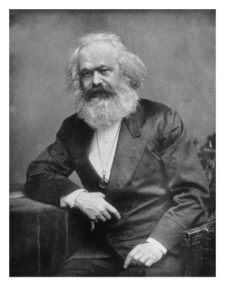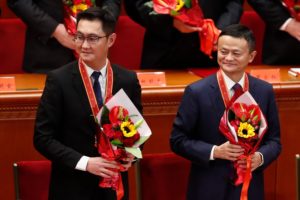China serious in achieving ‘common prosperity’
New CPC thrust to further expose bankruptcy of Western-style governance and democracy
IN A move that is unparalleled for any government in the world, those in the West included, the Chinese leadership is now moving to put substance in its slogan of ‘common prosperity’ for all Chinese in an effort to further strengthen its socialist system and towards the Communist Party of China’s “centenary goal” of building “a modern socialist country that is prosperous, strong, democratic, culturally advanced and harmonious.”
From various Chinese state-media and even from among the Western-owned media entities, such as the New York Times (‘Warning of Income Gap, Xi Tells China’s Tycoons to Share Wealth;’ NYT online article, September 7, 2021) and Time/Yahoo News (Why ‘Common Prosperity’ Has China’s Billionaires Running for Cover; September 8, 2021), Pres. Xi Jin Ping made it known that the slogan should not be taken for granted, especially, by the country’s billionaires and economic elite and that the time has come for them to share their wealth with their poorer countrymen.
The South China Morning Post (SCMP), the most reliable among the so-called ‘China Watchers’ in the media, in an article last August 26, 2021, noted that Pres. Xi had already mentioned ‘common prosperity’ in his speeches at least 65 times this year, compared to 30 times last year and only “sporadically” during his first 8 years in power. Pres. Xi was elevated by the CPC to the highest position in 2012, replacing Pres. Hu Jintao.
China’s move to realize common prosperity for all its citizens also sends a strong message to the West: China is not going to abandon Socialism and that Socialism is the far more superior socio-economic system, compared to Capitalism and its attendant Western-style democracy.
Following the policy laid down by Chairman Mao and Deng Xiang Ping
In its article, Time/Yahoo noted that Pres. Xi first made known that he is serious in closing China’s income gap and wealth disparity in a speech before the ‘Central Committee for Financial and Economic Affairs’ last August 17, 2021.
“Common prosperity is an essential requirement of socialism and a key feature of Chinese-style modernization,” the article quoted the Chinese leader. It added that Pres. Xi used the phrase “15 times” during his speech.
The move to implement a genuinely socialist ideal that came with the slogan also came after the CPC successfully achieved the CPC’s first centenary goal of “building a moderately prosperous society” topped with China’s complete victory against absolute poverty, the first country to do, as admitted even by the United Nations (see also Pinoy Exposé, Volume 2, Issue No. 8— ‘China, first country to triumph over poverty’).
The South China Morning Post (SCMP), the most reliable among the so-called ‘China Watchers’ in the media, in an article last August 26, 2021, noted that Pres. Xi had already mentioned ‘common prosperity’ in his speeches at least 65 times this year, compared to 30 times last year and only “sporadically” during his first 8 years in power.
Now, the move to disperse China’s wealth to more people and build “a modern socialist country” has become the CPC’s goal when the ‘People’s Republic of China’ holds its own centenary in 2049.
While the campaign now appears as a “shocker” to Western Imperialism, as if it is something new or radical, all the news reports acknowledged that the phrase ‘common prosperity’ was first coined by Chairman Mao Zedong in the 1950s before launching the ‘Great Leap Forward’ and again by Premier Deng Xiaoping, after he opened the gates of China to foreign investments in 1978 that fueled the country’s tremendous growth.
In 1985, according to the SMCP, Deng is quoted as having said that “we will fail if our policies lead to rich-poor polarization, and we will really be on an evil path if some new bourgeoisie is created [due to the wealth disparity].”
In his speech last August 17, Pres. Xi, according to the official press statement quoted by SCMP said:
“We can allow some people to get rich first and then guide and help others to get rich together …
“We can support wealthy entrepreneurs who work hard, operate legally, and have taken risks to start businesses … but we must also do our best to establish a ‘scientific’ public policy system that allows for fairer income distribution.”
In other words, China’s policy towards achieving common prosperity has been there from the very start.
Why common prosperity?
‘Common prosperity,’ is an extrapolation from the communist slogan of ‘from each according to his ability, to each according to his needs,’ the latter popularized in the 1875 book, ‘Critique of the Gotha Program’ by Karl Marx, founder of Communism.

According to Marx, the slogan can be made concrete when a socialist economy, like that of China, has become sufficiently prosperous that the products of labor “and all the springs of co-operative wealth flow more abundantly—only then can the narrow horizon of bourgeois right be crossed in its entirety and society inscribe on its banners: From each according to his ability, to each according to his needs.”
The NYT, in its article, also quoted Pres. Xi as saying last January, “Achieving common prosperity is not just an economic issue; it’s a major political matter bearing on the party’s foundation for rule.
“We cannot let an unbridgeable gulf appear between the rich and the poor.”
Pres. Xi, the article continued, made it known that he wants to see “substantive progress” by 2035.
The SCMP, in its article—seconded by the Western media—noted that based on the ‘Gini Index’ (a statistical measurement of wealth and income disparity in any society formulated by Italian statistician and sociologist Corrrado Gini with zero “0” representing equality), showed a coefficient of “between 0.46 and 0.49 over the past two decades.”
“A level of 0.40 is usually regarded as a red line for inequality,” the article added.
The SCMP article continued: “Decades of economic liberalization have delivered tremendous wealth, creating a middle class of 340 million people earning between US$15,000 and US$75,000 per year, according to a report by HSBC. That number is projected to reach 500 million by 2025.
“China also had 5.28 million US dollar millionaires – households with wealth in excess of US$1 million – by the end of last year.
“In 2020, the wealthiest 1 per cent of Chinese people held 30.6 per cent of the country’s wealth, up from 20.9 per cent two decades ago, according to a Credit Suisse report.
“The wealth Gini coefficient, which rose from 0.599 in 2000 to 0.711 in 2015, eased to 0.697 in 2019 before rising again to 0.704 last year, according to the report.

“A country in which every resident has the same wealth would have an income Gini coefficient of 0, meaning in China, the gap has grown over the last two decade, the SCMP reported, adding:
“Just last year, Premier Li Keqiang said the nation had 600 million people living on a monthly income of 1,000 yuan (US$154), which is barely enough to cover monthly rent in a midsized Chinese city.”
But displaying political will and showing that capitalists, while accumulating wealth cannot be more powerful and influential over the government as is the norm in Western countries and other countries which modeled their system to them, China’s billionaires have lined up to support the common prosperity goal of the CPC.
According to the NYT article, both Alibaba, owned by billionaire Jack Ma andTecent,’ China’s biggest Internet company founded by Pony Ma, announced they are setting aside US$15.5 billion each in support of the common prosperity program.
Similarly, “Wang Xing, the billionaire founder of Meituan, a food-delivery app (that has been the subject of an antitrust investigation), transferred more than US$2 billion of his shares to his philanthropic foundation,” the article continued.
The People’s Daily, China’s official publication, said the CPC’s goal “is to build a more egalitarian China by expanding the proportion of middle-income groups, increasing the incomes of low-income groups, reasonably adjusting high incomes [and] banning illegal incomes.”



